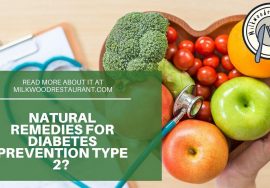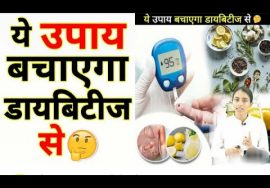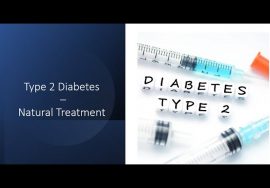Keto, Type 1 Diabetes and Ketoacidosis
Talk to a Dr. Berg Keto Consultant today and get the help you need on your journey. Call 1-540-299-1556 with your questions about Keto, Intermittent Fasting or the use of Dr. Berg products. Consultants are available Monday through Friday from 8 am to 10 pm EST. Saturday & Sunday from 9 am to 6 pm EST. USA Only.
. . For more info on health-related topics, go here:
ADD YOUR SUCCESS STORY:
Take Dr. Berg's Free Keto Mini-Course: or go here:
Download Keto Essentials
In this video, Dr. Berg talks about type 1 diabetes, ketoacidosis and ketogenic diet. Type 1 diabetes is a situation where the cells that make insulin are dysfunctional – no insulin production. Insulin is the key to allow glucose to go into the cell except for the brain, the brain can accept glucose because it is not dependent on insulin. If you can’t use glucose, the body will start breaking down of fat to such a degree that your ketones could get very high. If the ketones are over 9 to 15, that could be very dangerous. The more carbs that you eat, the more insulin you would need but when you do keto(ketogenic diet), the need for insulin goes way down.
It is important to fully understand the ketogenic diet. Here’s some ways to prevent these condition:
1. Make sure you monitor your blood glucose levels to know how much insulin you could take.
2. Do the healthy version of ketosis
3. Ketoacidosis: Start taking electrolytes (potassium, magnesium, sodium)
#diabetes1 #ketoacidosis #ketodiet
Dr. Eric Berg DC Bio:
Dr. Berg, 56 years of age is a chiropractor who specializes in Healthy Ketosis & Intermittent Fasting. He is the author of The New Body Type Guide and other books published by KB Publishing. He has taught students nutrition as an adjunct professor at Howard University. He no longer practices, but focuses on health education through social media.
DR. BERG'S SHOP:
Follow us on FACEBOOK: fb.me/DrEricBerg
Send a Message to his team: m.me/DrEricBerg
ABOUT DR. BERG:
Disclaimer:
Dr. Eric Berg received his Doctor of Chiropractic degree from Palmer College of Chiropractic in 1988. His use of “doctor” or “Dr.” in relation to himself solely refers to that degree. Dr. Berg is a licensed chiropractor in Virginia, California, and Louisiana, but he no longer practices chiropractic in any state and does not see patients so he can focus on educating people as a full time activity, yet he maintains an active license. This video is for general informational purposes only. It should not be used to self-diagnose and it is not a substitute for a medical exam, cure, treatment, diagnosis, and prescription or recommendation. It does not create a doctor-patient relationship between Dr. Berg and you. You should not make any change in your health regimen or diet before first consulting a physician and obtaining a medical exam, diagnosis, and recommendation. Always seek the advice of a physician or other qualified health provider with any questions you may have regarding a medical condition. The Health & Wellness, Dr. Berg Nutritionals and Dr. Eric Berg, D.C. are not liable or responsible for any advice, course of treatment, diagnosis or any other information, services or product you obtain through this video or site.
#keto #ketodiet #ketogenicdiet #weightloss #ketosis #ketoacidosis #intermittentfasting
#keto #ketodiet #weightloss #ketosis












This is really awesome information. After only 4 months on a ketogenic diet my husband has reached his goal weight, lowered his blood sugar, and reduced his insulin by over 50%. It has been nothing short of a blessing for us. Thanks for sharing doc! 💪
@dana102083 unfortunately for type 1 diabetics, since our pancreas beta cells are attacked by our immune system, we dont have any or enough left to create insluin so keto is amazing at reducing and controlling diabetes issues but we still need to supplement insulin. 🙂 for now at least, perhaps there can be a natural reversal of the immune response to killing beta cells, but so far not known.
I hope he’s off insulin now!! (maybe not if t1d but here’s hoping!!)
Thanks for sharing that critical advice, Dr. Berg! You’ve gotta eat your veggies on Keto. People love to just eat the fats and meat but skip the veggies. That’s a BIG mistake!
Thank you so much! I am a 30 year type 1 diabetic and I’m 31 now and it has helped me so much! New to Keto and you have guided me so much! Thank you
I had a similar situation! I thought “well, everything has arrived” 🙂 I went to bed with normal sugar, the sugars were super. but the body of a type 1 diabetic, when on a keto diet, as I understand it, cannot store the required amount of glycogen, and if you moved a lot or made a little more insulin dose during the day, it can throw out something dangerous. all the same, metabolism is broken. please be careful! I also thought that this will not happen and should not be.
@Golden x Diva I had a similar situation! I thought “well, everything has arrived” 🙂 I went to bed with normal sugar, the sugars were super. but the body of a type 1 diabetic, when on a keto diet, as I understand it, cannot store the required amount of glycogen, and if you moved a lot or made a little more insulin dose during the day, it can throw out something dangerous. all the same, metabolism is broken. please be careful! I also thought that this will not happen and should not be.
@Elias Contreras always remember, ketoacidosis occurs with HIGH SUGAR AND HIGH KETONES in a HIGH INSULIN STATE. Eating keto is LOW INSULIN STATE, where BLOOD SUGAR DROPS and KETONES GO UP. This is why it is safe to do with monitoring with a doctor for medication changes and regular maintenance checks. There are only very few people who can’t do it, as they legit cant use ketones, or convert fatty acids to ketones in the liver and is a very very rare genetic disorder. Good luck!
@Sabrina Giles – If only 1 unit of insulin makes you hypoglycemic, are you sure you need insulin? That is the lowest increment of insulin it comes in– if that is too much for you then I wonder if you are still producing your own insulin and don’t need to inject it. ???
Sabrina Giles maybe you just need to switch the insulin you’re taking? I would talk to my endo if that kept happening but you know what’s best for you. Just my thought
Hi Dr. Berg, I ALWAYS love to watch your videos – so informative, and helpful. I have been type 1 for 49 years (I am close to 50 years old – so all my life). I have suffered Ketoacidosis only 2 times in my life, and I honestly thought I was going to die, once when I was 12, and another when I was 17 and discovered alcohol – where binge eating after alcohol, and skewed brain function, causes the need for food, and of course, the insulin delivery doesnt always happen! Never again will I go into Ketoacidosis – so, in that respect, I will ALWAYS be OK on Keto. I have contacted my Consultant to ask about fasting, and he said that’s OK, as long as I monitor my blood glucose and adjust insulin levels. I haven’t gone into detail with him about keto, and his response is that there is not enough studies to give advice on this, and so KETO is my choice. I like it purely because it is allowing for MUCH less insulin, and we all know that insulin is the bad boy in our body, causing all the problems. I wish you would do a video on Type 1, with fasting, and effect on the kidneys if already at 60% GFR. I have done so much googling on this subject, and I cannot find anything, and my consultant is not very helpful in this regards, so Youtube had to be my got-to for education. I am in the UK, and the health services around the world are all different, and yet, the health problems are global. Fasting and Keto, I do believe are the things that are going to help me improve my health – and my hope is that by adopting these techniques, I am not damaging my kidneys further.
Hi Mary, many thanks for your response and well wishes. As you well know, if you have had any serious hypo’s, it can mess with your head a bit. I have been round the block many times and had many hypo’s, and to be honest, those don’t really frighten me, its the highs that do this.
I made the decision to do Keto, even though I don’t actually have contact with any other type 1, and my initial attraction for keto was simply because it was being touted as good for health, and of course, as I got more knowledge on it, I know that diabetes control is a MASSIVE factor in my life, and given that this diet regime can significantly reduce insulin, it was always going to be something I wanted to do. I think one of the negative thoughts from those in the medical profession is that the keto regime does not allow you to get enough fibre in your diet. My fibre intake was mainly wholemeal bread and whole wheat crackers, and all bran for breakfast – not really a keto friendly approach! Even though I took the advice on board, I am happy to accept the consequences of not getting enough fibre – I eat enough green leafy vegetables to give a decent amount of fibre, and I take wheatgrass, which is high in fibre, so I am OK with that.
What I will tell you is that 15 years ago, after having type 1 for close to 35 years, after a long monitoring session over a number of weeks, it was decided that I was having some insulin resistance, and, as a result, I had to go on Metformin, maximum dose – If I knew then, what I know now, there is no way that I would have been on metformin all those years! So, after recently doing a prolonged water fast along with some short duration (3 days) dry fasts, I managed to lose a LOT of weight, and I made the decision for myself that I should stop the Metformin. What I will say, now that I have been practicing keto for around 3 months, I think I am in the ‘Fat Adapted’ state, and my reaction to insulin is much greater – there are no tests for me to check this, but as I monitor closely after having a bolus shot, if my blood glucose is above 8, my blood glucose level falls quite quickly – and during my time being insulin resistant, the reaction was MUCH slower, even on higher doses. Now that I no longer take the Metformin, I actually feel a LOT better, lower in weight, and able to eat the keto, and enjoy it, and if you search for keto meals, there are LOTS of recipes out there, and given that it stays high fat, moderate protein and low carb, its a winner – recently did headbangers kitchen broccoli and cheese soup – and instead of being able to keep it for myself, everyone stole it, because it was so delicious, and they are not even on keto! I do try to include green leafy veg along with a few salad items, low carbs – the fat content does keep me satiated, and everything Dr Berg and Thomas Delaur have said, are actually true.
I honestly have no need to consult with my doctor, as he doesn’t have the knowledge that I need, and it is highly unlikely that doing keto is going to be harmful to our health. If there was even a hint of this not being good, you would see many bad rap video’s here on youtube. Yes, there are a few who have had bad reactions to keto, but, for me, I am happy with my results. I am not qualified to recommend it to others, but, if anybody were to ask my advice, I would suggest a look at investigating OMAD, or at least a 20:4 IF protocol, and then finish off by adopting Keto – I feel much more healthy now, and I am sticking with it.
This is only my opinion, but, given that we, as type 1 diabetics, have total control of our own insulin delivery, we shouldn’t suffer the side effects of being too hungry anyway. Yes, there are still the ghrelin bugs in there making us hungry, but, as insulin makes you hungry, we are at the advantage here, because we choose to deliver, when we want, and not when there is a physiological response – well, that’s just my opinion, probably totally incorrect, but what I know is that I have NEVER had this keto flu, and I have never had hunger pains. When I was fasting, I actually went for 5 weeks, not hungry at all.
My hope for the future is that my GFR will not degrade too fast, so that I can stay off dialysis.
Thanks for reading
I wish you well with your adoption of keto, and if you want to get in touch, even if for a discussion, I can be reached at markstanleycollins AT gmail DOT com.
Mark.
I appreciate so much of what you’ve written, Mark. I am also a type 1 and have found it very difficult to find good info about keto, IF, and type 1 diabetes. So I too have gone to journal articles and YouTube. My endocrinologist said, like your consultant, that there aren’t enough studies about keto and type 1 so he couldn’t recommend it, but he also said that if I monitored my ketones and blood sugars carefully that he didn’t see too much of a problem (not exactly a resounding endorsement). Luckily I’ve never had a DKA episode and don’t want one. I also would love to see more videos and info out there about type 1, IF, and keto. I have found that Dr. Bosworth (Dr Boz on YouTube) is working with a Type 1 and posts videos on Sundays about the experience, and of course Dr. Fung and Amy Ramos also say that Keto and IF are fine for type 1’s but encourage Medical Supervision. It’s tough to get Medical Supervision when all the practitioners in the area don’t understand or want to work with the Keto/IF lifestyle! Good luck to you.
thank you Dr Berg, I’ve been on keto for 1 year now! I’ve never felt better!
Thank you so much Dr Berg. As a type 1 diabetic these videos are extremely helpful.
Thanks Dr Berg for this info. I’m a type 1 diabetic and really want to give both Keto and IF a good try. My endo is skeptical about this but will allow if I monitor very carefully. DKA has been my major concern so videos like this encourage and support me.
@WhySoSrs? if it’s not type one he has then a strict diet early on along with excercise will cure it
twn5858 my dad was just informed by his doctor to have a1c reading of 8 and that he needs medication. I told him to hold on that and to do strict keto instead. How risky is this for him? At what number does it become type 1?
Mary how is your journey?
@Mary Coleman that is awesome! Congratulations for everything you are accomplishing! If only more people would think like you; learn as much as possible while carefully listen to what body needs to decide what best action to take
Good for you. You need to become educated in treating your health issues and you need to take charge of your health care decisions. The ‘doctor’ may assist you but you need to be in charge by becoming knowledgeable.
The Bernstein diet saves T1’s lives and works very well for most people. it’s fantastic for BG control. And yes. It’s a ketogenic diet.
Yeah but lok at some of dr berg’s videos, he doesnt have a lot of flesh on him and his cheeks look sunken in some i have seen so obviously there is something not quite right for him long term. Looks like he needs more meat. Compare how he looks to people on the carnivore diet like dr Berry and you’ll see they look way healthier!
@Caleb Caleb maybe you should listen to dr eric’s video of the 3 year interview with the 600+lb man, they talk about healthy protein sizes. Even in this video he says, healthy version of keto, i.e. primarily vegetables.
@john schlesinger “A truly ketogenic diet is high in fat and low in protein”.
I don’t know where you picked that up from but the keto diet is high in fat as well as protein.
Don’t expect you to understand unless you have done it before and have done it properly.
@Sabrina Giles If you wish to know more, read the book: Dr Bernstein’s Diabetes Solution, by Dr Bernstein. It is full of information. You could also look at his videos on YouTube: Dr Bernstein’s Diabetes University, where he answers numerous questions.
@john schlesinger wow, does he recommend anything for type 1’s?
I usually just watch your videos. But just wanted to let you know that these are so awesome. Thank you!
Thank you so much for shedding light and educating people on Type 1 diabetes!! My daughter was diagnosed at 4 years old and people constantly confuse Type 1 for Type 2. Uneducated people often criticize and think she was given “too much sugar”. She is now 11 and we juice, and reduce carbs. Our entire family is on a modified Keto diet and we are doing very well! At her last Endocrine visit, the doctor was very impressed with her A1c. Again, thank you!!
Your daughter is blessed to have you.
I can relate so much to this 😄
Hi JB, my daughter was diagnosed in 2018, she’s 10. Please can I get an idea of the food time table you use for your child? Thanks
Thanks Dr Berg. Great information as always. I’m currently on my 7th week of keto and have not lost passed the first 2 weeks. I weigh 10st 10lbs and am taking prednisolone 22.5mg alternate days for autoimmune encephalitis. I’m doing keto in the hope it can help my condition but wondered if the prednisolone is not helping matters. Would greatly appreciate some info on keto on prednisolone. Thanks in advance.
This subject requires additional insight, research, and cause&effect. Please delve into this subject in greater detail; however certainly appreciate you bringing this subject (Type 1) to the forefront Dr. Berg!!!
@Mathaios if you have no need for insulin, you’re not a type 1..
Also I eat twice a day same time. Never eat passed 7pm as that spikes glucose even with 0 carbs. (This is also seen to a lesser degree in people without metabolic disorder).
@Cláudio Quadros I have 0-10g of carbs a day, no need for insulin. If you consider a proper insulin diet please talk to your doctor to dose insulin correctly and avoid hypos. I don’t get hypos anymore and my blood sugar is usually 85-100
@Thomas Topp Thank you soo much for this valuable information in regards to Dr. Bernstein. I thank GOD that you mentioned him. The light🌞 at the end of the tunnel has gotten significantly brighter. I’m watching now👍.
@Sabrina Giles
Have checked out Dr Bernstein’s Diabetes Solution
He also has a monthly vlog Q&A on YouTube, very helpful and informative!
Best of luck to you, hang in there and never give up, you are not alone in this struggle 💜
hi dr berg, great vid ! – you mentioned that in the insulin deprived state, fats etc get broken down to feed the cells, but what about the the high sugar in the blood ? *how* does the body handle that ?
Hi doctor, I learnt a lot from this video. My 10year old daughter is diabetic (type 1), please can I get a Keto diet or timetable that I can use for her? Please respond, thank you
Very true !! I am literally going through this very issue. Been doing keto 3 months , losing weight like crazy !! First two months a spinach salad every day. But couldn’t eat veggies any more and last month has been all protein. And I just had an issue with gout !! First time in my life. I’m 53. Lost did a small job and forgot to drink and became dehydrated. Leg cramps so bad couldn’t sleep. Got up and drank the ACV Went back to bed and was able to sleep !! Rehydrated and now I’m fine , I hope. And back to spinach salads and veggies too !! Awesome info Dr !!
Thank you I have a nephew that needs this information!
I’m type 1 diabetic and I’m doing a extended fast… I’m on day 9 of a 21 day fast.. I’m drinking about 2 liters of fresh water and 750 mL of salt water with baking soda and potassium salt and Himalayan salt for sodium..
I’m down to only using 1.2 units of insulin per day.. My sugar ranges from 65 to 120.. Am I risking DKA with such little insulin? Or should I be fine as long as I keep hydrated and my sugars stay how they are..
Unfortunately I don’t have a Ketones meter..
Lots of people on the type 1 groups think that any amount of Ketones is bad… What’s your take?
Still alive Jorge?
How was you 21 days fast Jorge?
I’m watching this because I wanna tell my dad about keto, he’s diabetic type 1 and has to take insulin at least 2 a day. Unfortunately most information on the topic is still in English language (which he doesn’t speak) so thank you for your vídeo Dr.Berg.
I am just starting on Keto as well
As a type 1 diabetic I have been having trouble getting my carbs down enough without getting low blood sugars. Does anyone have any advice on how to do keto with type 1 diabetes?
Transition slowly and adjust your insulin doses to the new diet. I had to radically change my insulin amounts when I went keto— more insulin during the day and less at night! That’s just my body though— your body would have its own needs.
Need electrolyte powder with 1k of potassium and eat lots of LOW oxolate veggies.
Thank you so much!! 🙏🏻💜
My pleasure!